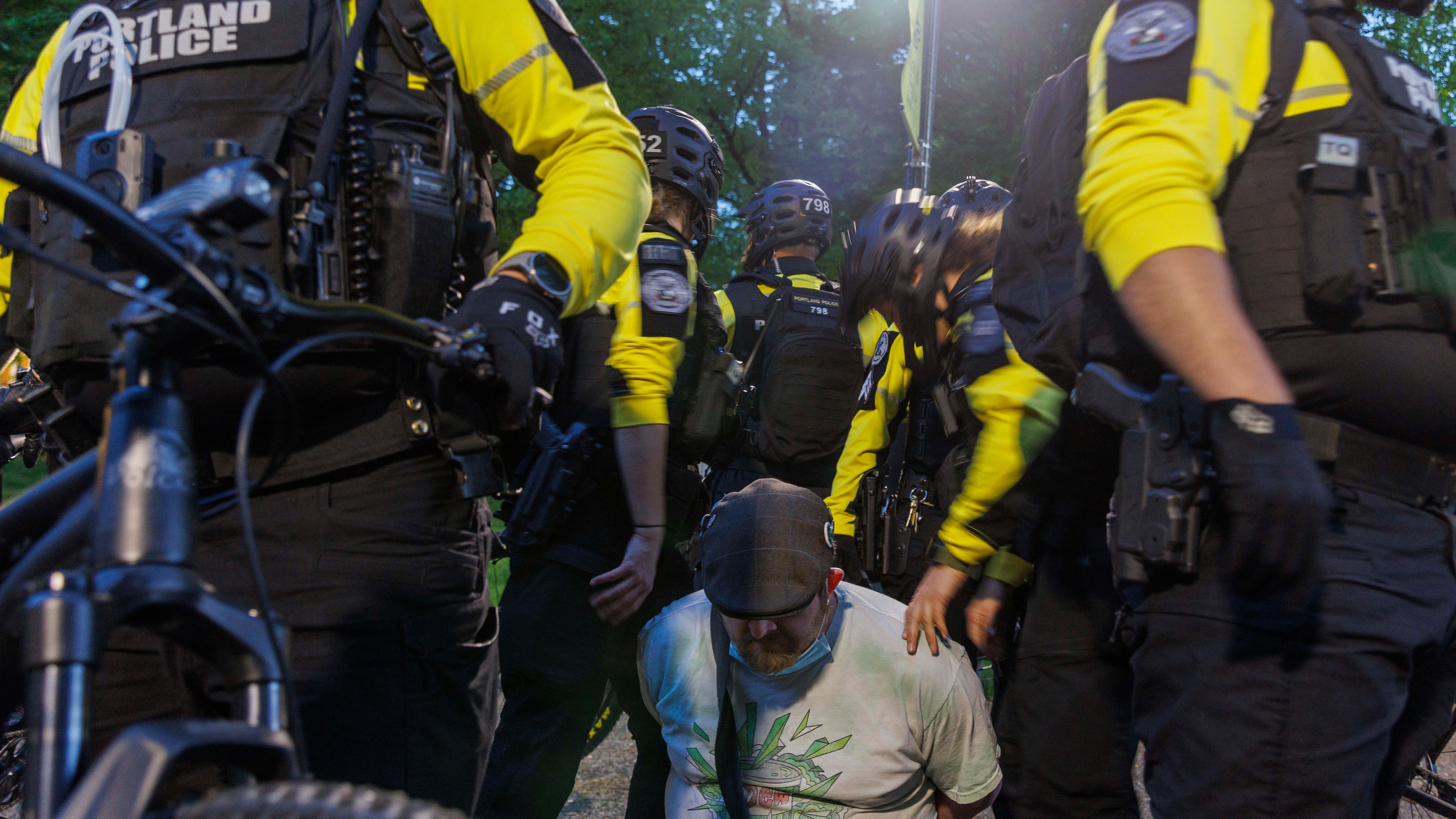Polling conducted last month on behalf of business interests shows more than two-thirds of Portland voters would support a ballot measure requiring the city to maintain a police force at the same scale as other large U.S. cities—in effect, nearly doubling the number of sworn officers.
That concept was one of a half dozen floated to 600 voters in early April by polling firm DHM Research on the dime of downtown property owner Greg Goodman and Calbag Metals CEO Warren Rosenfeld, among others. WW first reported last month that the phone survey was in the field. DHM sent a memo to Goodman today, whose consultants then forwarded it to WW. It outlines one polling result, but not the others.
That result, however, is a doozy. DHM pollsters found that 69% of voters would support a ballot measure to “require the City of Portland to maintain a police force size no smaller than the average for large cities in the United States.” That support remained stable after pollsters offered arguments for and against the measure. After hearing those arguments, 68% of voters supported the idea, and 27% opposed it.
“A ballot measure requiring Portland to maintain a police force size equal to the average for large cities in the United States starts with firm support,” the April 19 memo from DHM pollsters to Goodman says. “This support holds up even when voters consider that this requirement would increase the police budget and may lead to cuts to other valued city services, including fire, parks, transportation, and programs addressing homelessness.”
Such a requirement would compel an enormous staffing increase at the Portland Police Bureau. A 2022 examination by WW of police staffing figures showed Portland ranked near the bottom in police officers per capita. The Rose City had 1.2 officers for every 1,000 people in the city, half the national average of 2.4 officers and well below the median figure among the nation’s 50 largest cities, 1.8 officers.
In Mayor Keith Wilson’s proposed budget, the Portland Police Bureau receives $318 million of the city’s $803 million general fund. Doubling the police staffing budget would require eliminating much of the city’s other services or significantly raising taxes.
Nevertheless, Portland Police Association president Aaron Schmautz said the result shows public appetite for more officers.
“It is another reminder that Portlanders value the services provided by Portland police officers, they would like more of it, and it further represents a community with needs that aren’t being met based on our current staffing abilities,” he said. “We can’t just snap our fingers and hire 800 police officers today. This would be a generational shift.”
The polling arrives days after City Councilor Candace Avalos debuted a budget amendment that would move $1.9 million of the police staffing budget to offset cuts to parks maintenance. Avalos and her allies on the left wing of the council have pointed to their own polling figures—also from DHM Research—showing that Portlanders would prefer to preserve parks spending over police budgets, although those survey results are decidedly mixed.
The council will debate amendments to the budget this week.
The first release of DHM polling results also includes approval ratings for Wilson and the City Council. The new mayor has a 51% approval rating, with 27% of voters disapproving of his job performance. The council doesn’t fare as well: 40% of voters approve of its performance, with 41% disapproving.
WW first reported in April that Goodman and Rosenfeld were passing the hat among other wealthy businessmen to fund the poll. (Rosenfeld is a board member of the Oregon Journalism Project, a news nonprofit founded by WW‘s co-owner.) The other polling questions include several ideas popular in boardrooms: repealing Multnomah County’s Preschool for All tax; restricting the distribution of tarps, tents and sleeping bags to the unhoused; and mandating that the county fund 700 jail beds, which Goodman says currently sit vacant.
Voter responses to those ideas were not discussed in today’s memo.

